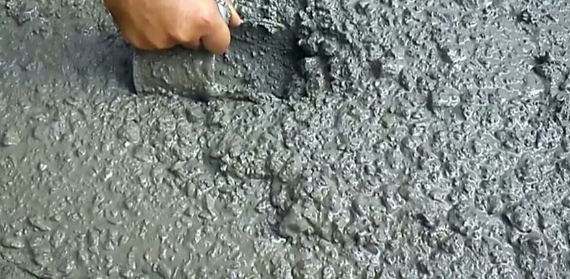What Affects Concrete Strength In Escondido?

- The type of cement used. Also known as the binder, cement is the material that gives concrete its strength. There are different types of cement, with each type having its own unique properties.
- The amount of water used. Too much or too little water can significantly affect the strength of concrete. This is because water is needed to hydrate the cement and allow it to form bonds with the other ingredients.
- The type of aggregate used. The aggregate is the inert material that makes up the majority of concrete. It can be anything from sand to gravel, and each type has its own effects on concrete strength.
- The ratio of cement to water. This ratio is known as the water-cement ratio, and it plays a crucial role in determining concrete strength. A higher ratio means stronger concrete, while a lower ratio results in weaker concrete.
- The amount of compaction. Compaction is the process of removing air pockets from concrete mix, and it is essential for achieving optimal strength. Poor compaction can result in a lower strength concrete.
- Curing conditions. After concrete is placed, it needs to be cured, or allowed to dry slowly and evenly. This curing process allows the concrete to reach its maximum strength potential. Poor curing conditions can adversely affect concrete strength.
- The age of the concrete. Concrete continues to gain strength over time, so older concrete is usually stronger than newer concrete. However, this gain in strength slows down after about 28 days, so the age of the concrete is not as important beyond that point.
FAQ’s
What Factors Affect The Strength And Workability Of Concrete?
The type of cement used, the amount of water used, the type of aggregate used, the ratio of cement to water, the amount of compaction, and the curing conditions all play a role in determining the strength and workability of concrete.
What Is The Most Important Determinant Of Concrete Strength?
The type of cement used is the most important determinant of concrete strength. Different types of cement have different properties, and some are better suited for certain applications than others.
What Increases Concrete Strength?
Adding more cement to the mix, using a stronger type of cement, using less water, using a coarser aggregate, and increasing compaction all increase concrete strength.
Conclusion
Concrete strength is affected by a variety of factors, from the type of cement used to the amount of compaction. Understanding these factors is essential for ensuring that concrete is used properly and achieves its optimal strength potential. For more information, contact Concrete Contractor Escondido at (760) 993-3343.